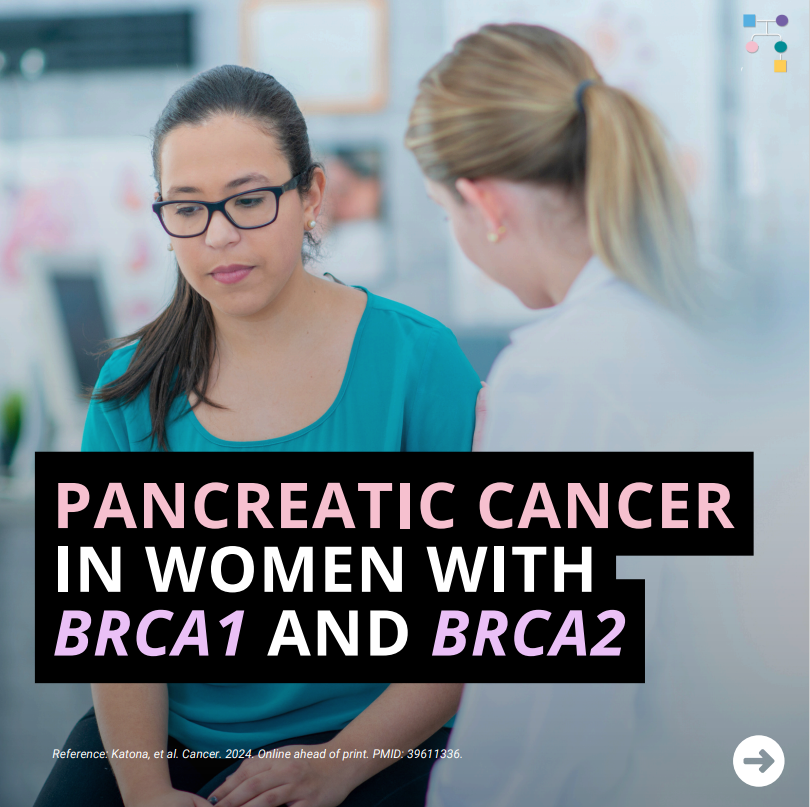
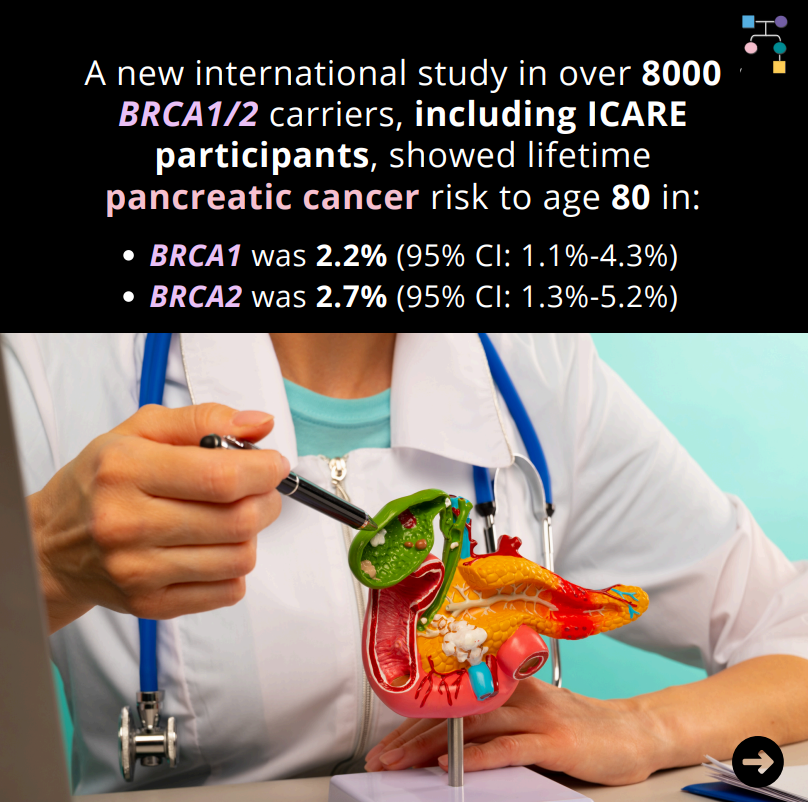
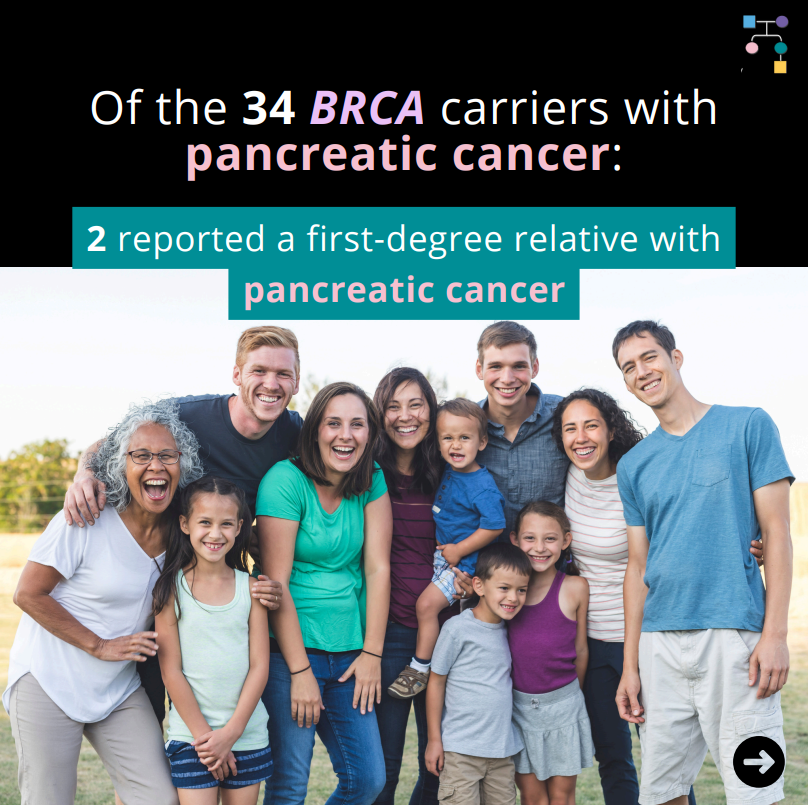
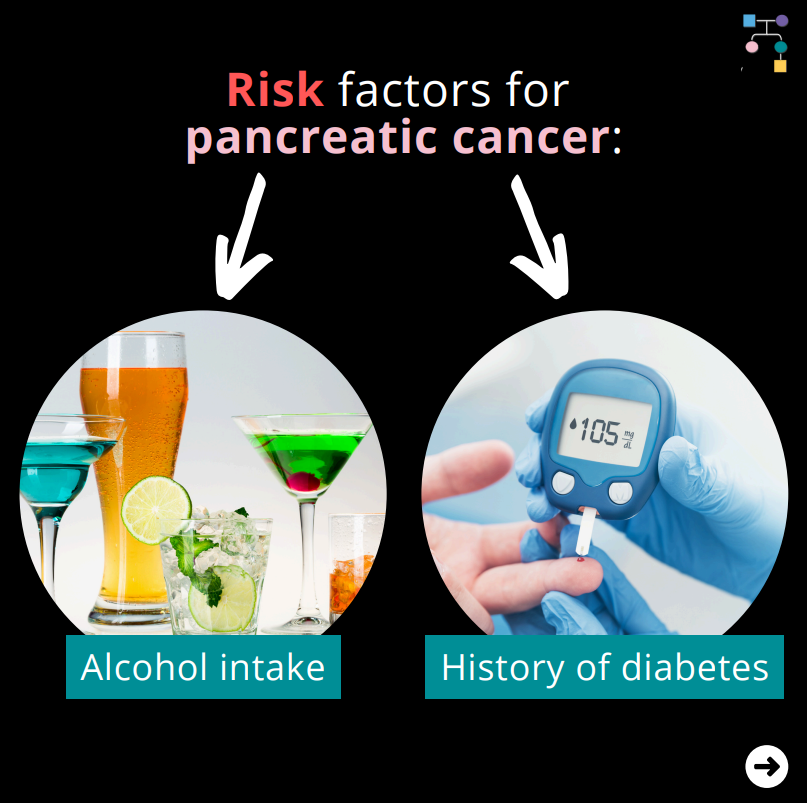
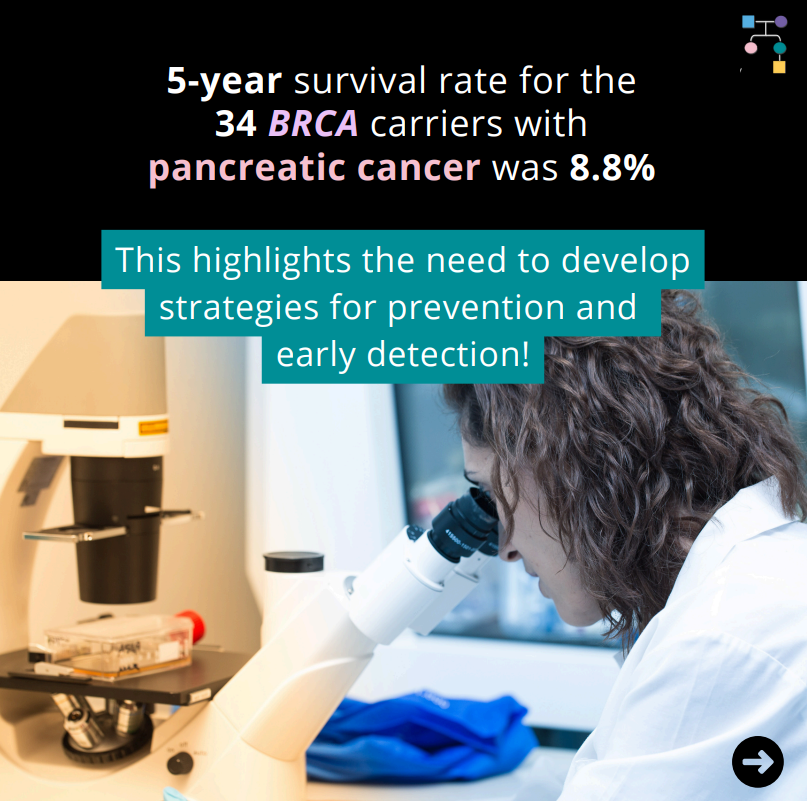

A new international study in over 8000 BRCA1/2 carriers, including ICARE participants, showed lifetime pancreatic cancer risk to age 80 in:
- BRCA1 was 2.2% (95% CI: 1.1%-4.3%)
- BRCA2 was 2.7% (95% CI: 1.3%-5.2%)
👩👩👧👦 Of the 34 BRCA carriers with pancreatic cancer, 2 reported a first-degree relative with pancreatic cancer.
⚠️ Risk factors for pancreatic cancer include alcohol intake and history of diabetes.
📈 5-year survival rate for the 34 BRCA carriers with pancreatic cancer was 8.8%, which highlights the need to develop strategies for prevention and early detection!
Read the full article to learn more at: https://pubmed.ncbi.nlm.nih.gov/39611336/
Reference: Katona, et al. Cancer. 2024. Online ahead of print. PMID: 39611336.
